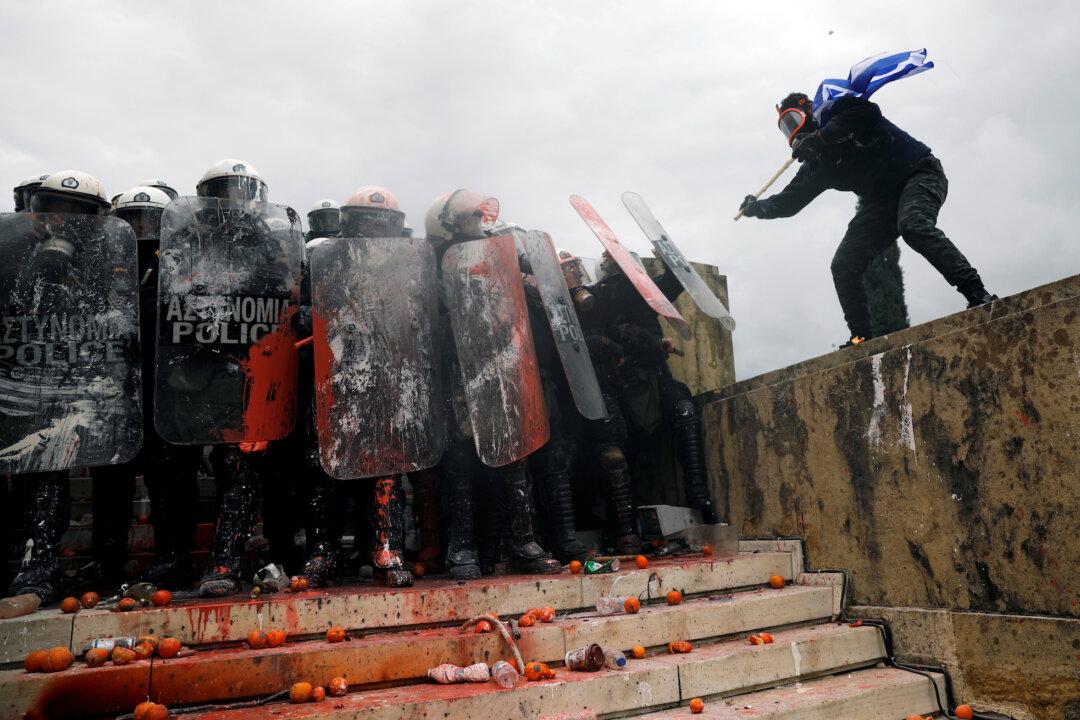Greek protesters clashed with police outside Parliament on Jan. 20, with tens of thousands rallying against a name-change agreement between Greece and Macedonia on grounds that it erodes national identity.
Demonstrators chanted “Macedonia is Greek” and waved Greek flags, according to a BBC report, and a highway was temporarily blocked in northern Greece in solidarity with the protesters.





